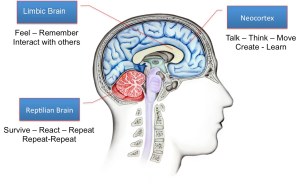
At what age do humans develop emotional intelligence? The answer might surprise you.
Emotional pain typically drives the quest for psychotherapy. Pain, after all, is nature’s signal that an organism’s welfare, and survival, are threatened. Hence, taking action to identify the cause of the pain and to eliminate it are adaptive. Any psychotherapist, and anyone who has undertaken psychotherapy, will tell you that it is not always easy to identify the cause of the pain and treat it — unlike how we diagnose and treat bacterial infections with antibiotics. We have no clinically-available biological markers for emotional distress: no blood tests, brain scans, or urine assays. The pain is no less real than that experienced elsewhere in the body, but explaining it is orders of magnitude trickier and requires more indirect methods of assessment.
Just try finding a word to describe the experience of an emotional ache. The exercise renders most of us speechless for minutes. Patient: “It feels bad.” Therapist: “Yes, but which bad feeling is it?” Patient: “I don’t know.” And so the patient and therapist begin the excavation of the layers of his/her emotions and emotional learning history, down the layers of time as far as we can go — working to identify the feeling, its duration, its triggers in real time, and its roots in emotional history. Read more
Share this post






